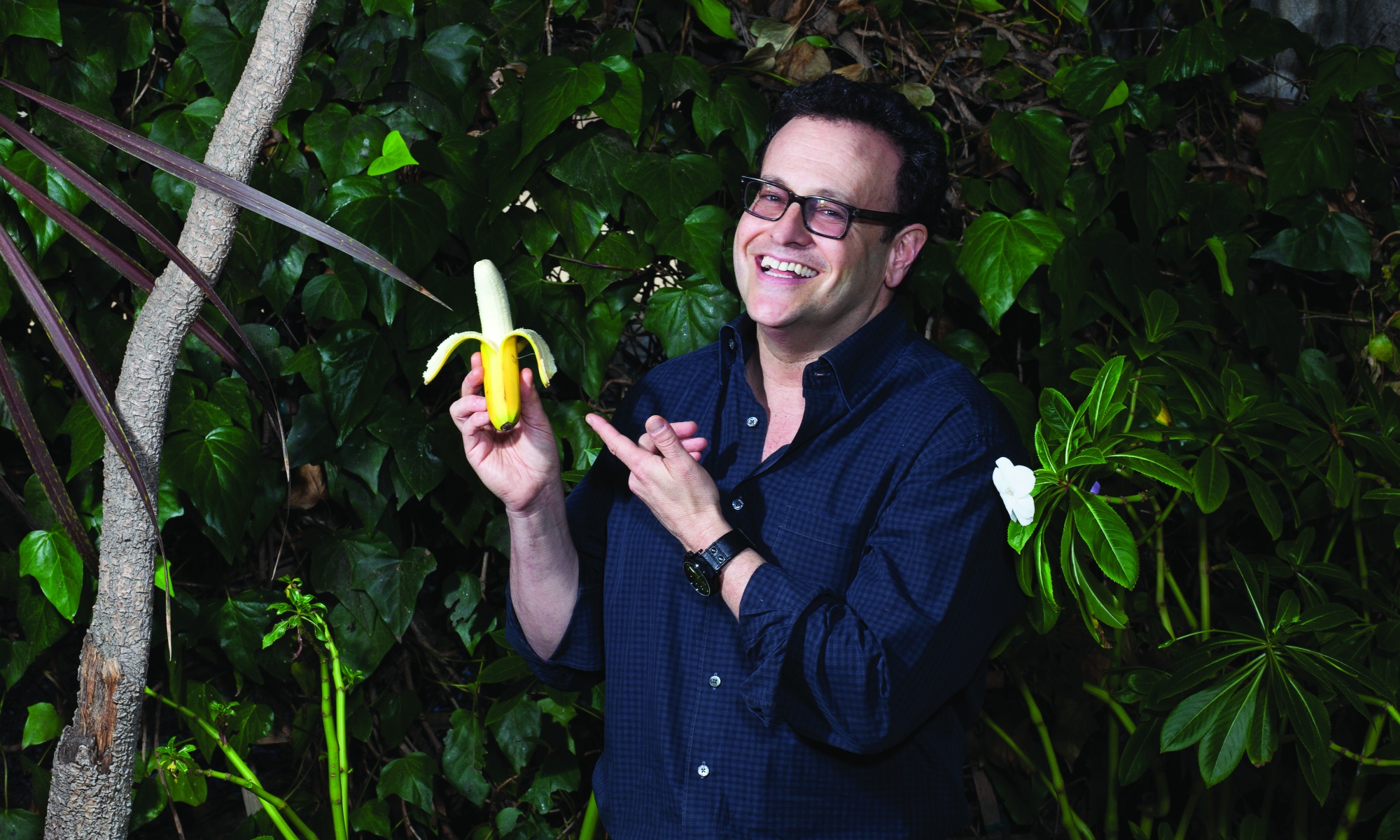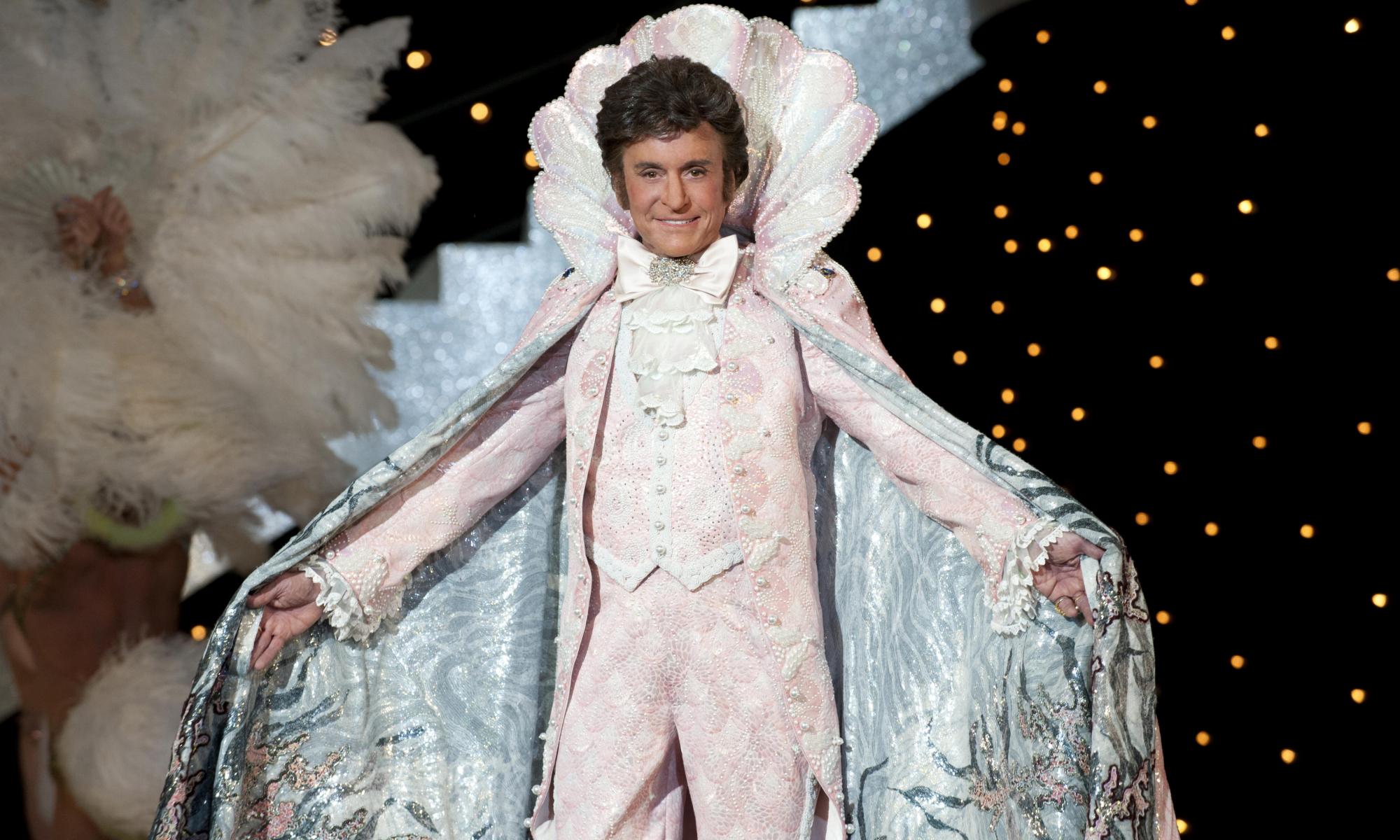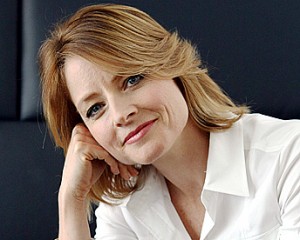In the final stretch before the Oscar ballot deadline, there’s still hope that voters remain undecided in the animation category. Though Walt Disney has cornered the Oscar slot with three titles, its Frankenweenie stands as an island against the epic Brave and the existential crisis comedy of Wreck-It Ralph. The film is an auteur’s youthful dream short, once buried by the studio that has resuscitated it as a 3D stopmotion feature—the first in black and white. This Frankenstein homage about a boy who brings his dead dog back to life is signature Burton complete with his monster movie motifs, funky production design, and poetic adolescent themes. Many will argue that Burton is long overdue for an Oscar, and God knows, he’s come close: He was previously nominated in the animated category for 2005’s Corpse Bride. His 1994 absurdist biopic Ed Wood garnered a supporting actor win for Martin Landau (as Bela Lugosi) and best makeup, while 2007’s Sweeney Todd: The Demon Barber Of Fleet Street won best art direction and noms for Johnny Depp as best actor and Colleen Atwood’s costumes. Another appealing Burton attribute for Oscar voters is that he remains an iconoclast among the big-studio directors working today—he’s a visual artist with a spooky canon that appears alienating with its deep subtext, but that lures the masses with its fanciful spins on children’s tales such as Charlie and the Chocolate Factory and Alice in Wonderland. AwardsLine recently spoke to Burton about his career and Frankenweenie’s place in it.
AwardsLine: Why was this the best time to make Frankenweenie as a stopmotion feature? You were just as successful then as you are now and could have conceivably made it in 1993 instead of Nightmare Before Christmas.
Tim Burton: All these projects take a long time. I remember when I first designed Nightmare, it took about 10 years to get that in place because nobody really wanted to do stopmotion, and in a way, there weren’t a lot of facilities that were doing it. We did the Frankenweenie short many years ago, and I never really planned on it being anything else. Over the years, I just kept kind of thinking about the relationship with my dog, but also other monster movies, the kids and teachers from my school, and even the downtown places in Burbank. A lot more thoughts came into Frankenweenie, and it just felt like the right medium for it. It was fun to do the live action thing, but going back and forth and looking at the original drawings (stopmotion) felt like a more pure version to do it. And, again, it was fun to expand on all those kind of memories.
AwardsLine: Was there a specific part of Burbank that you grew up in that you based the setting upon?
Burton: Off Victory Boulevard, Hollywood Way, moving toward North Hollywood, but the flatlands of Burbank. And a little bit of the downtown area, up where the City Hall is, but mainly the flats. There’s also that geography of the flats and then the hill—the sort of up-against-the-mountains kind of thing. It was based on memories—the starkness of things like the park and even the downtown; we tried to personalize it as much as we could. The original we shot live action in Pasadena, which isn’t really the same kind of feel and look of Burbank. Burbank is kind of a hermetically sealed place. It doesn’t really change much. There are more trees now than there used to be, but it’s kind of the same.
AwardsLine: When you made the original short, where did you see it being placed?
Burton: It was originally meant to go out with an animated feature. It’s like in the old days when animated features were fairly short, they’d have a nature live action short Country Cougar Goes to Hollywood—you know, that kind of “raccoon comes to town” stuff. The idea was it would go out with Pinocchio as a featurette. Then when Disney saw it, they got freaked out by it, and so it didn’t get released. They showed it in front of Pinocchio and nobody had a bad reaction to it, but when Pinocchio and the whale came onscreen, kids were screaming and crying out of the theater. That’s what Disney movies do! So it never got released, but it was still enjoyable to do.
AwardsLine: That’s really bizarre. I was crying and screaming when I saw the whale as a kid, but there was never a Disney short that could trigger such an emotion.
Burton: I know, that’s the weird thing. It’s hard to find logic in things sometimes. That’s why I can’t analyze things too much because it often doesn’t make much sense.
AwardsLine: Well, given whatever hiccup you had with Frankenweenie, you had a really successful run with the studio. How has Disney’s philosophy, or their way of thinking, changed toward avant garde artists such as yourself? How has it changed throughout the years?
Burton: Obviously there’s been different regimes over the years. All different types of people have come in, but they always try to follow some slightly strange Walt philosophy, which gets kind of abstract down the years. But I have to say, on this movie and my recent experiences with them, there were no arguments about the black and white; they seemed to understand it. I think it probably helped that the movie didn’t cost a whole lot; it made it easier to accept the black and white. They were cool about it, and they were very supportive of it, and I’m just always very grateful when that happens. It’s not their usual thing so for me it means a lot.
AwardsLine: What is it that you love about stopmotion? I know 3D makes the art form more amazing.
Burton: Well, I mean I love it. I think of Ray Harryhausen’s work—I knew his name before I knew any actor or director’s names. His films had an impact on me very early on, probably even more than Disney. I think that’s what made me interested in animation: His work. And there’s something that’s old-fashioned and quite beautiful about it. The thing that’s amazing is, it’s like live action but imagined, and it’s tactile. The puppets are usually these beautiful little works of art that move, and to see a character walking in and out of shadows one frame at a time and the lighting, it’s like a real movie. There’s something magical about it. It kind of connects you back to the origins of film, in a way. There’s something about seeing this little inanimate object coming to life that’s just very exciting. That’s why with Nightmare I held out for so long to do it.
AwardsLine: I remember the ParaNorman filmmakers speaking at Deadline’s The Contenders and mentioning that it took them a week to shoot one minute of footage. Is that the same production time for you?
Burton: Oh, yeah.
AwardsLine: Or do you have the benefit of working with several crews?
Burton: No, we had a pretty small crew. I would say there were times that we wouldn’t even get a minute in a week. We had a smaller crew, definitely, than we had on Nightmare or Corpse Bride, for sure.
AwardsLine: Wow. On those films, were you able to do two minutes a week or is that just a crazy schedule?
Burton: No, it depends. It depends on the shots. I mean, it can take up to a week to do a shot, depending on the complexity of it. At most, you’d be lucky to get a couple of shots a day once you get up and running and ramping, and you’re fully into it. Also, sometimes you start out with a slightly smaller crew, and as it goes the people that are assistants actually are quite good at animating, so (you) sort of train people that don’t start out as animators but several months into production they become decent animators. So it kind of changes a little bit.
AwardsLine: So you’ve actually taken on journeymen in stopmotion, and by the end of the film, they’ve become pretty experienced?
Burton: Yes, and it’s actually quite difficult because it’s such a rare find. The people that are good at doing it get lured into the more lucrative computer animation, and/or they go to other companies, so each time I’ve done a project. I’ve had to find people. There’s a few people I’ve worked with that have been consistent, but you have to start from scratch almost each time because, also, it takes time to mount. From Nightmare to Corpse Bride to this, building the puppets takes a lot of R&D. There’s a lot of time: Here’s the drawing, but is the puppet going to work? And there’s a lot of ripping and tearing, and now we have to make this bigger, and you know all that stuff that goes into making (it) that takes up quite a bit of time.
AwardsLine: Well, creative justice has been served and Frankenweenie is nominated for an Oscar. Have you ever tried to make heads or tails of the Academy and the way they vote? Did you ever make a film and say to yourself, “Hey, this could possibly be Oscar worthy”?
Burton: No. I mean, I can’t even target this for children or adults (laughs). Honestly, I think you can find by our conversation, there are a lot of things that are quite abstract about the whole thing, so I think for me it’s not something that’s in your control. It’s hard to analyze or predict things. I think if I ever had that thought, it would freak me out and I wouldn’t be able to do a project!
AwardsLine: I first saw Pee-wee’s Big Adventure when I was 13, so I’ve grown up with your career and came to embrace your work in the same vein as David Lynch and Terry Gilliam. Each of you had your own distinctive voice, but what you’ve been able to do that they haven’t, is you’ve become widely appreciated and most of your work is mainstream. What do you attribute that to?
Burton: Again, it’s hard for me to analyze it because, as everybody, you have your ups and downs, but it’s funny because I’ve never been able to target. Like I said, from the beginning of my career, Pee-Wee’s Big Adventure and Beetlejuice were on some of the year’s worst Top 10 lists and it’s like, “Whoa!”, you know? So I’m no stranger to bad reviews and things. But then many years later, those two worst movies of the year, “Well those were his two best films,” you know? (laughs). Like, is it going that downhill? Some of the worst movies of the year were my best? I may as well just end it all right now. So I mean it does make it kind of a strange in an Alice in Wonderland kind of world in that way. I find that the most special thing to me is if you’ve connected to people in some way. If someone comes up to you on the street and says something to you and you know it’s meant something to them and it’s connected to some project. That, I find, is amazing. Every movie can go either way and you never can predict it. That whole MoMA exhibit (on my work)—a lot of people think that I went to MoMA and said, “Hey, would you put my artwork up in your museum?” (But) they came to me, which I was quite surprised about, because it’s not something that I would have ever thought of or even considered. So that was a strange surprise. I liked the curators. I felt my work was in good hands, but again it was not something I was looking for. It was an amazing, interesting surprise.
AwardsLine: Was there ever a filmmaker or studio executive who influenced you in your career and made you trust your voice?
Burton: I’ve had lots of help. To be honest, whatever troubles you’ve had, I’ve also gotten the opportunities to do things. I remember early in my career with Disney, which was a very strange time in the company—there were a couple of executives who were very supportive of me and kind of let me do my own thing. You know when I went to Warner Bros. there was a woman named Bonnie Lee who was an executive who helped me to get to Pee-wee’s Big Adventure. They’re giving you the money, and you try to find people you relate to as much as possible, so I’ve been lucky to have people, especially early on, be supportive and help me along.
AwardsLine: Touching on Johnny Deep for a moment. You know, I never watched 21 Jump Street…
Burton: (laughs) Yeah, I’ve never seen that.
AwardsLine: Well, Edward Scissorhands was the first time I ever saw him act, and he blew me away.
Burton: I think it probably helped that I hadn’t seen 21 Jump Street (laughs).
AwardsLine: What did you see in Depp early on?
Burton: It was quite simple. I mean, I knew about 21 Jump Street, and I had seen pictures and stuff, and I met him and he just reminded me of what the character was. At the time he was perceived as a teen idol, you know, a Justin Bieber type of guy, but as a person he wasn’t that. So, for me, he mirrored what Edward Scissorhands was: He was something inside, but people treated him a certain way because of the way he looks. So in a weird way, he was the character, because he had those feelings.
AwardsLine: Is he involved early on in the scripts with you, particularly with Dark Shadows? I remember Seth Grahame-Smith mentioning at a Q&A that Depp acted out the character of Barnabas Collins in a development meeting with both of you.
Burton: It depends. Every one has been different. I’m trying to think back. With Ed Wood, the script was there. I think on Sweeney Todd, I just asked him, before there was a script, if he’d go for it. But usually there’s a script.
AwardsLine: And your next project?
Burton: Yeah, I don’t really know what it is, so don’t bother with that (laughs). Really. Because I just sort of injured myself so I’m just getting through the pain threshold now, so it’s kind of hard to think at the moment. And I don’t really have anything at the moment.
AwardsLine: Jumping back to Frankenweenie, you said you re-created some of your teachers in the film. And there’s this great homage to the old monster movies: There’s a kid who looks like Igor, the science teacher looks like Vincent Price who I’ve always known has been an idol of yours. Now, did these people in your life actually look like Igor and Vincent Price?
Burton: Oh, yeah. There was definitely a weird girl—I very specifically remember her. And some of the people there were a mixture of types. There was a couple that were maybe like two people that were kind of stuck into one—just the sort of dynamics and the kid politics and the way kids act toward each other and the wise oldies. Again, I just tried to go back and remember all those feelings and the way that other kids felt quite strange to me. So I just tried to capture those feelings of those memories.
AwardsLine: Lastly on the music. Your composer Danny Elfman mentioned that there isn’t a shorthand between the two of you after working together for several years, that each time is like starting anew. What was your take on your musical process together, particularly with Frankenweenie?
Burton: It is funny because I’ve known him since the beginning of my career so it is strange. It doesn’t seem like it’s getting any easier (laughs). I don’t know what that is all about because there is a weird—I mean, I’m not a musician, so it’s hard for me. I do find it hard sometimes to communicate with him, and the easiest thing for me to do is to play him a piece of music, but he doesn’t like that. And I don’t really like doing that either because it’s like, well, most composers don’t like temp scores. On a project like this, it’s the kind of (Bernard Herrmann) stuff that he loves, so there’s that kind of obvious connection there. He grew up loving those old monster movies as well. He got the emotion of the story as well. So it wasn’t that difficult.

















